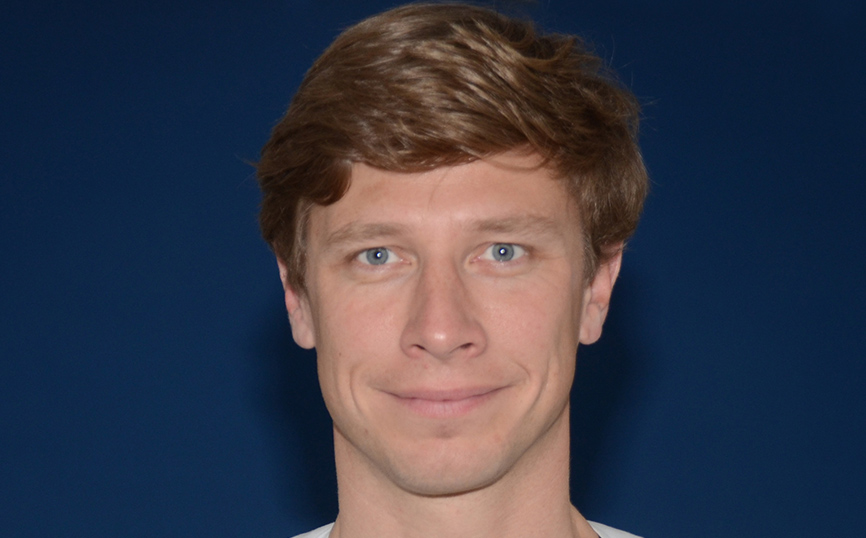An Unforgettable Learning Experience: A word from our latest Rabin Medical Exchange Fellow: Dr. Felix Benninger

1. Please provide an overview of your fellowship at your hospital and the role you played during your stay.
- I spent two months at the Epilepsy Center of UCLA, which is headed by Dr. Jerome Engel. My direct supervisor was the epilepsy specialist Dr. Dawn Eliashiv, and I worked closely with her, Dr. John Stern, and the epilepsy fellows, Drs. Reis, Reed, and Weiss. I participated in the Epilepsy Monitoring Unit (EMU) by completing rounds, patient admissions, EEG readings, as well as participating in both clinical group meetings and research meetings.
2. Describe how your fellowship opportunity has expanded your knowledge in your specific field.
- The excellent teaching by all the doctors at the epilepsy center UCLA was an amazing opportunity for me to advance my knowledge in the field. The admissions of patients in the EMU, seizure descriptions, and discussions about treatment opportunities that are not yet available in Israel, were fantastic. My EEG reading skills improved tremendously.
3. What did you enjoy most about your fellowship opportunity?
- The close link between clinical work and basic research at UCLA was most enjoyable. The direct translation of clinical observations into discussions for research, and then converting such into a project serves as a great example for me to follow in the future.
4. What were some of the challenges you faced while working at your hospital?
- In the beginning, I suffered from bureaucratic hurdles that took almost a week to overcome until I could officially join the team. Unfortunately due to my observership status, I was not allowed to treat patients myself like at my home hospital.
5. Do you feel international medical relationships and fellowship programs are vital to the future of medicine and research?
- In my opinion, The direct exchange and close work relationship is the cornerstone of continuous relationships. I will do everything to keep in touch with the new contacts that I made at UCLA in the hope to work on a collaborative research project.
6. Explain the major differences between the Israeli health care system and the United States private healthcare systems in terms of your specific field.
- Major obvious differences are the space and equipment that seems unlimited in the United States. These large scale diagnostics (e.g. MRI appointments) exist in Israel, but they take much more time to receive. Secondly, doctors are much more patient in the United States and have much more time with each patient. Their willingness to answer every question repeatedly is incredible. I learned many useful skills that I implement back home.
7. What do you feel are the key issues and challenges in your field – not only in the Unites States and Israel, but worldwide?
- In my field of Epilepsy, the next key challenges is to to work on the prevention of epilepsy and not just a symptomatic treatment of the already developed disease (seizures) as is performed today. Further challenges are to tackle the under- utilization of epilepsy surgery to cure patients and to not only treat them them symptomatically.
8. What are your future plans at Rabin Medical Center when you return to Israel?
- As soon as I return to Israel, I will work on building an Epilepsy Monitoring Unit (EMU) at Rabin Medical Center. This is extremely necessary and as a tertiary center, we cannot continue providing our services without the EMU. Next, I will work on a joint research project with Dr. Dawn Eliashiv from UCLA and we will need begin to apply for grants. Also, I already created a detailed plan on how to provide better teaching opportunities to our residents and advance EEG and Epilepsy teaching.
9. Would you recommend this fellowship to your peers? Why or why not?
- I cannot stress more how helpful, inviting, and efficient all of the staff at the epilepsy center at UCLA was in providing me one of my best experiences as a doctor. I highly recommend to anyone interested in epilepsy to come and follow me here.
Related Articles
Rabin’s Gold Standard: Cardiovascular Disease Clinical Research
Senior cardiologist from Rabin Medical Center, Dr. Alon Eisen, is the first doctor from Israel to participate in renowned TIMI (Thrombolysis in Myocardial Infarction) Study Group in the United States.
Dr. Yair Molad, Head of the Rheumatology Unit at Rabin Medical Center, Visits New York City
"Twenty-two years after graduating the fellowship program in the Rheumatology Division at New York University Medical Center and the Hospital for Joint Diseases, I've come back as a visiting professor for a 10-week sabbatical period."
Expanding Knowledge Through the Rabin Medical Exchange Fellowship
With plans to become a cataract surgeon, Ruti Sella focuses in cornea, cataract and refractive surgery at Israel’s Rabin Medical Center. Ruti Sella is part of an ever evolving field, which combines complex surgical challenges that utilize cutting edge new technologies and growing demand of microsurgical techniques.